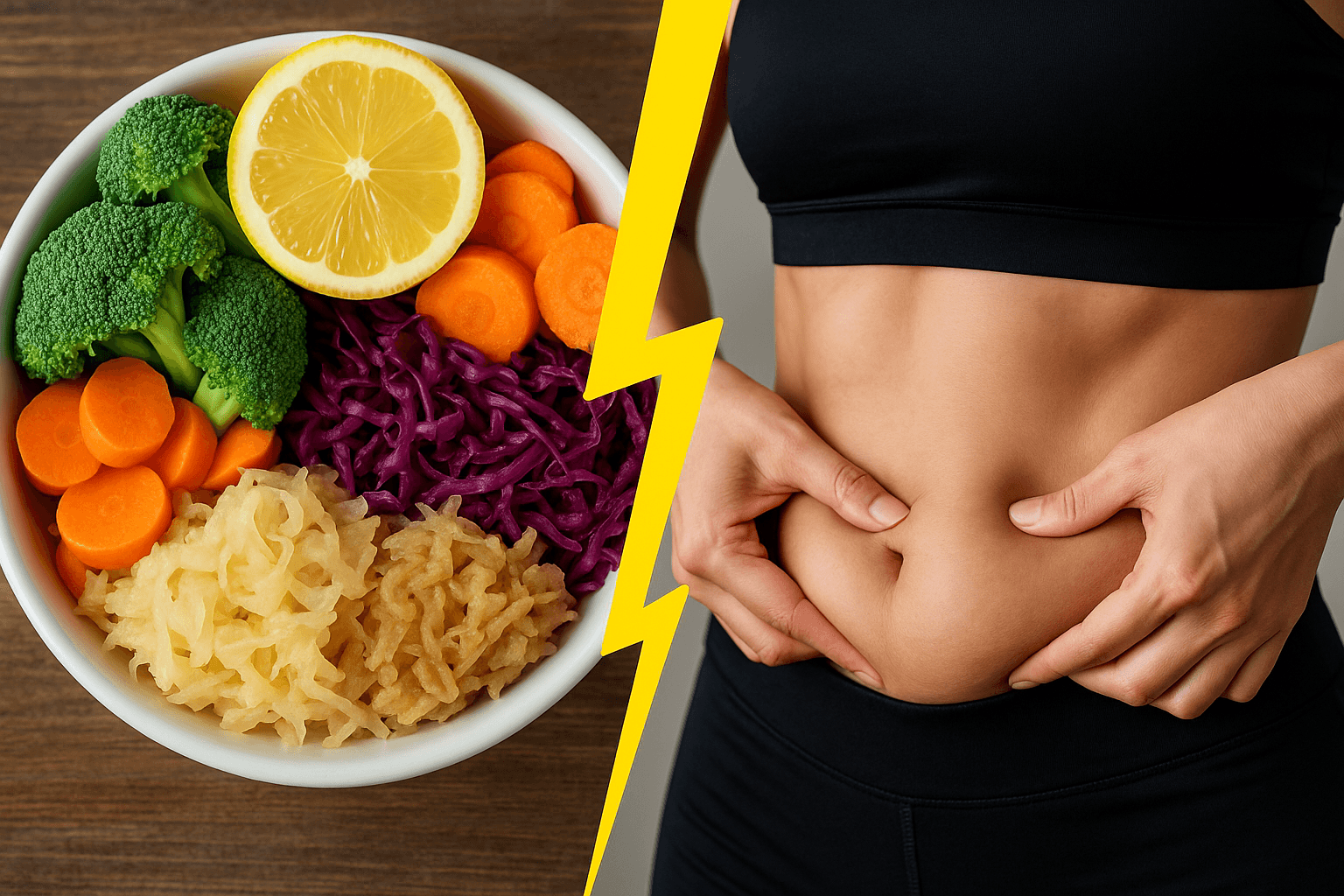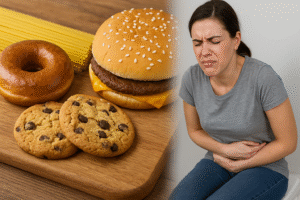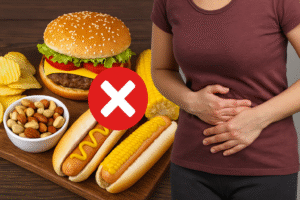When it comes to both feeling good and taking care of your body, there’s one mighty nutrient that often gets overlooked — fiber. Whether you want to improve your digestion, aid in healthy weight loss, or simply feel good overall, fiber is your secret weapon. The best part? It’s already in a lot of the foods that you love — or at least, should love.
Fiber — the secret to a well-rounded diet you didn’t even know you needed
When we hear “fiber” most of us think of boring cereals or nasty fiber supplements. But let’s set the record straight: Fiber is about so much more than providing relief in the bathroom. It does many wonders to maintain our gut healthy and to help us to burn fat in a more proficient way. And yet, in reality, the majority of Americans fall short of getting half the fiber they need on a daily basis.
So, what exactly is fiber?
Just to keep things clear, remember, fiber is actually a type of carbohydrate that the body can’t digest. Unlike other carbs, which break down into sugar, fiber just passes through your digestive tract nearly unchanged. Still, it achieves a lot of good along the way.
The Gut-Fiber Connection: Why Adding Fiber to Your Diet Can Boost Your Well-Being
Think of your gut as a kind of proliferate highway full of trillions of microbes. These little living things — also called your gut microbiome — have a massively important role in your health, influencing everything from your immune system to your mood. Here’s where fiber comes in — it’s what they eat.
When you consume fiber-rich foods, you are feeding the “good” bacteria in your gut. That enables them to multiply and shove out the “bad” bacteria and restore a healthier balance overall.
There’s prebiotic fiber which grows healthy bacteria.
Soluble fiber, which dissolves in water and aids the absorption of nutrients.
Insoluble fiber bulks up your stool and keeps things moving.
“Our gut is where 70 percent of our immune system lies, and it’s also where the neurotransmitters that we use to feel mentally and physically good are mostly created.” So not only does fiber help you not get constipated (read: it’s also down with that), it’s helping to maintain a good gut environment that can help boost immunity and even your mental clarity.
Yes, Fiber Can Assist You Burn Fat
This may be such an unpleasant surprise, but fiber is your fat loss friend. Filling up on enough fiber makes you feel fuller for longer, which makes you less likely to snack on junk food or overeat during your next meal. That’s good for the waistline.
Here’s how fiber contributes to weight management:
- Inhibits digestion: This discourages the crashes in blood sugar level that drive cravings.
- Fiber fills you up for fewer calories.
- Gets the insulin sensitivity up: This then leads to more fat being burned as opposed to stored.
Fiber is like your body’s built-in appetite regulator. Ever eaten a really big salad and felt way more satisfied than you thought you would? That’s fiber doing its job!
How Much Fiber Is Good for You, Anyway?
The daily recommendation may surprise you: Women should get about 25 grams a day, and men should get at least 38 grams. That’s a lot more than what most of us are actually eating. But don’t worry — if you know what to reach for, it’s not hard to get there.
Simple Tricks to Boost Your Fiber Intake
- Begin the day with whole grain, such as oatmeal or whole wheat toast.
- Graze on fruit like apples, pears and berries, which are packed with fibre and fruit sugars.
- Throw beans or lentils into salads, soups and stews for a protein and fiber combination.
- Opt for those with skin on — carrots, cucumbers and sweet potatoes.
- Add a sprinkling of chia seeds or flaxseeds to smoothies, yogurt, or cereals.
And keep in mind, once you start to up your fiber intake, drink lot of water. Fiber absorbs liquid, and not enough water can make you feel bloated or plugged up.
Wondering About Fiber Supplements?
Yes, you can supplement with something like psyllium husk or inulin powder to crank it up if you’re lagging on fiber. Real, whole foods are always preferable, of course. They are filled with a range of other nutrients, and your body is able to absorb them with greater efficiency.
However, if in a pinch, a fiber supplement can step in to close the gap — especially if you’re always on the move. Just remember to consult with a health care provider before adding something new into the mix.
What If You Aren’t Getting Enough Fiber?
Low-fiber eating is more than just a recipe for constipation. Low fiber intake messes with your gut microbiome and may even increase inflammation and your risk of diseases like diabetes, heart disease and obesity.
If you’ve been feeling slugged, bloated or generally “off,” your gut may be trying to send you a message. Begin by examining what you eat to see what’s on your plate; it may be that you just need more fiber!
Your Gut Will Thank You
You don’t have to revamp its entire operation overnight. Just gradually work your way up to one fiber-rich meal a day and go from there. Perhaps exchange white rice for brown rice. Or swap that bag of chips for crunchy carrots and hummus. Tiny behaviours affect big changes over time.
Here’s a fibrous day to start you off:
- Breakfast: Chia and blueberries in my oatmeal.
- Lunch: Whole grain wrap with hummus, greens and roasted vegetables
- Snack: Apple and a couple of almonds
- Dinner: Grilled salmon with quinoa and steamed broccoli
Final Thoughts: Fiber Is a Force to Be Reckoned With
Fiber isn’t sexy, but it’s mightier — and more mysterious — than you might imagine. From boosting gut health and aiding weight loss, to reducing inflammation and steadying blood sugar, it can drastically alter the way you feel—from the inside out.
So the next time you are planning a meal, ask yourself: where’s the fiber? Your gut, your body and perhaps even your mood will appreciate it.
“Do you want to feel better and lose some fat? Begin by adding a little more fiber to your plate — one bite at a time.








